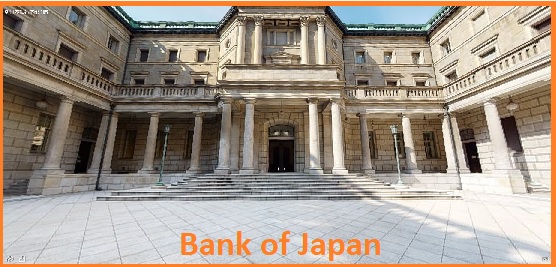
(Photo : BoJ)
Bank of Japan
- Asian markets fluctuated as investors awaited a speech by Jerome Powell, the Federal Reserve Chair, for confirmation of U.S. rate cuts.
- In Japan, the yen gained 0.4% following Bank of Japan's Kazuo Ueda's willingness to raise interest rates, causing the Nikkei to rebound.
- European and U.S. markets showed cautious optimism, while the broader Asian market saw minor losses and gains.
- The global financial market is in flux, with contrasting stances of the U.S. Federal Reserve and the Bank of Japan highlighting diverging policies of major central banks.
Asian markets experienced a tumultuous day on Friday, with shares sputtering and the dollar rebounding from one-year lows. Investors worldwide held their breath in anticipation of a speech by Jerome Powell, the Federal Reserve Chair, who is often referred to as the world's most powerful central banker. The markets were eager for confirmation that U.S. rate cuts would commence in September, a move that could have significant implications for global financial trends.
In Japan, the yen gained 0.4% to 145.63 per dollar, a development that followed remarks by Bank of Japan's Kazuo Ueda. Ueda expressed a willingness to raise interest rates if the economy and inflation align with forecasts. This statement, which contrasted with the expected U.S. rate cuts, sent ripples through the market. Initially, the Nikkei sold off, but it rebounded in the afternoon, rising 0.4% to reach a fresh three-week high.
Investors seemed to interpret Ueda's comments as less hawkish than initially feared, leading to a modest reaction of a 3 basis point rise in domestic yields. The European market was set for a subdued open, with EUROSTOXX 50 futures flat and FTSE futures up 0.4%. Meanwhile, S&P futures and Nasdaq futures rose 0.3% and 0.6% respectively, indicating a cautious optimism in the U.S. market.
BOJ's Stance on Interest Rates and Market Reactions
Data released early in the day showed that Japan's core inflation had accelerated for a third consecutive month. However, a slowdown in demand-driven price gains suggested there was no urgency for immediate rate hikes. Krishna Bhimavarapu, an APAC economist at State Street Global Advisors, predicted that the stronger yen and the reintroduction of energy subsidies would slow inflation in the near term.
He suggested that if the data evolves as expected, the next BOJ hike might not occur until December, as fears of rapid inflation ease. Traders seemed to agree with Bhimavarapu's assessment, seeing little chance of a BOJ rate hike in October following the recent sell-off. However, a move in December was priced at a 70% probability, indicating a shift in market sentiment towards the end of the year.
In the broader Asian market, MSCI's index of Asia-Pacific shares outside Japan trimmed earlier losses to be down just 0.1%, heading for a weekly gain of 1%. China's blue chips gained 0.3%, although Hong Kong's Hang Seng fell 0.3%, and South Korea edged up 0.1%.
Anticipation for Powell's Speech and Market Implications
Overnight, Wall Street fell as sentiment turned cautious ahead of Powell's speech in Jackson Hole. Three Fed speakers on Thursday hinted at a rate cut in September, voicing support for a slow and methodical approach. This, combined with surveys showing the U.S. economy still growing at a healthy pace, led markets to slightly pare back the chance of an outsized half-point cut in September to 24%, down from 38% a day earlier. A quarter-point reduction is fully priced in.
Robert Carnell, regional head of research, Asia-Pacific, at ING, noted that Powell's speech could either excite or disappoint markets, depending on the data. He said, As any decision that deviates from market pricing will rest on as yet unknown data, it is hard to see how Powell can commit to much beyond some easing of some sort in September, and even then, only barring data accidents.
Treasury yields slipped a little on Friday, having gained overnight for the first time in five sessions. Ten-year yields fell 2 basis points to 3.8445% in Asia, while two-year yields also dropped 2 bps to 3.9934%. The declining yields pressured the dollar to one-year lows, although it did get some respite from selling pressure overnight. The euro came off its one-year high to $1.1126, with major resistance seen at $1.1139.
Commodities looked set to end the week lower. Brent crude futures were almost flat at $77.28 a barrel, although they are down more than 3% for the week as swelling U.S. crude stocks and a weakening demand outlook in China have raised pessimism. Gold prices are up 0.4% to $2,494.84 an ounce, recharging towards its record high of $2,531.6 hit just on Tuesday.
In conclusion, the global financial market is in a state of flux, with investors worldwide awaiting signals from central banks. The contrasting stances of the U.S. Federal Reserve and the Bank of Japan highlight the diverging policies of major central banks. As the world watches and waits, the words of central bankers like Powell and Ueda have the power to sway markets and shape economic trends. The anticipation surrounding these speeches is reminiscent of the 2008 financial crisis when the world awaited the words of then Federal Reserve Chair, Ben Bernanke. However, the current economic climate is different, with the world grappling with the aftermath of a global pandemic and the unique challenges it presents.
* This is a contributed article and this content does not necessarily represent the views of btin.co.in









